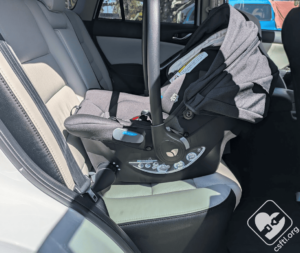Common Car Noises and What They Mean

They can come, seemingly, from out of the blue. One minute you’re driving your car and everything seems fine, and the next moment you hear a strange noise coming from your car as you accelerate.
Before you turn up the radio a little louder in hopes that sound goes away, take a closer listen and find out where that sound is coming from. Learning a little bit about some of the common noises your car might make, can help you identify what the problem may be and help determine when you should visit your mechanic. That might be the difference between some preventative maintenance and a costly repair bill.
Here are a few common car sounds and — and helpful tips on what to do about them.
1. Screeching sound under the hood
Probable cause: A loose or worn serpentine belt.
What to do about it: Your serpentine belt drives several vital pieces of equipment in your car, including the alternator, water pump, power steering pump, air conditioning compressor and radiator fan. If you think the screeching sound is a loose or worn belt, make an appointment to have it looked at.[1] Your mechanic can tell you how serious it is and how soon you need to replace it. The most important thing is to avoid having it give out unexpectedly; your car won’t run without it.
2. Chugging or rattling noises
Probable cause: Exhaust system.
What to do about it: A damaged exhaust system can produce a veritable symphony of sounds and each unique sound may mean something different. A chugging sound could mean there’s a blockage in the exhaust system.[2] A rattling sound might mean it’s out of alignment. A hissing sound could mean there’s a crack in the exhaust system. Take your car in for an exhaust system check.
3. A low-pitched humming from under your car
Probable cause: This could be a few different issues. Note when the noise happens so you can better help your mechanic diagnose the problem. If your car makes a humming noise, it could mean the differential needs lubricant, the transmission is failing or the universal joints or wheel bearings are wearing out.
What to do about it: Pay close attention to what happens before and when your car starts making the sound. Try to give your mechanic as much information as possible to work with; without a thorough, professional inspection, it can be difficult to tell what the problem is. Don’t let the noises continue without having an expert take a look at your vehicle.
4. Squealing or loud grinding sound from your brakes
Probable cause: Worn out brake pads.
What to do about it: The sound you’re hearing is likely the calipers grinding against the rotors. Get your car to a dealership or brake repair shop ASAP. If you’re not tapping the brakes but you still hear the sounds, don’t think that everything is OK.[3] This issue will only worsen, and your brakes are extremely important for your safety while driving.
5. A thudding noise from your tires
Probable cause: Low air pressure in your tires or improper tire alignment.
What to do about it: Check the air pressure in your tires and make sure they’re inflated to meet the tire manufacturer’s recommended levels.[4] If that doesn’t take care of the problem, see about getting them aligned. Improper alignment wears out your tires faster and can result in poor gas mileage or a bumpy ride.
6. Scraping noises from windshield wipers
Probable cause: Your wiper is wearing down.
What to do about it: Fix this issue as soon as possible. If the worn-out wiper scratches your windshield, it can be expensive to replace. A bad wiper will also reduce visibility when raining, making it much more dangerous to drive.
7. Clunking while driving
If this happens while you’re driving, it might be a bad shock absorber, which has an impact on handling, steering and even braking. Get it checked out.
8. Clicking while turning
If this happens while you’re turning, the CV joint, which lubes the front axles, is the likely culprit. When it wears out, it loses the grease that keeps the axles lubricated. It’s best to replace the CV joint rather than waiting until you need costly axle replacements.
9. Ticking noise while your car is idle
Typically, you’ll hear this while you’re stopped—if you’re low on oil. Get an oil change as soon as you can.
It’s important to pay attention to the noises your car makes and take care of things promptly to avoid facing more expensive repairs. Find a mechanic you trust so you’ll know your car is being properly maintained.
Taking good care of your car also means making sure you’re properly insured. Create a policy that fits your specific needs and helps keep you and your car protected.
[1]“Noises From Belts and Pulleys,” My Car Makes Noise
[2]“How can I tell if my exhaust needs attention?,” KwikFit
[3]“8 Car Noises: What They Mean and If You Should Worry,” Firestone Complete Auto Care
[4]“6 Car Noises to Keep an Ear Out For,” Paul Campanella’s Auto & Tire Center







